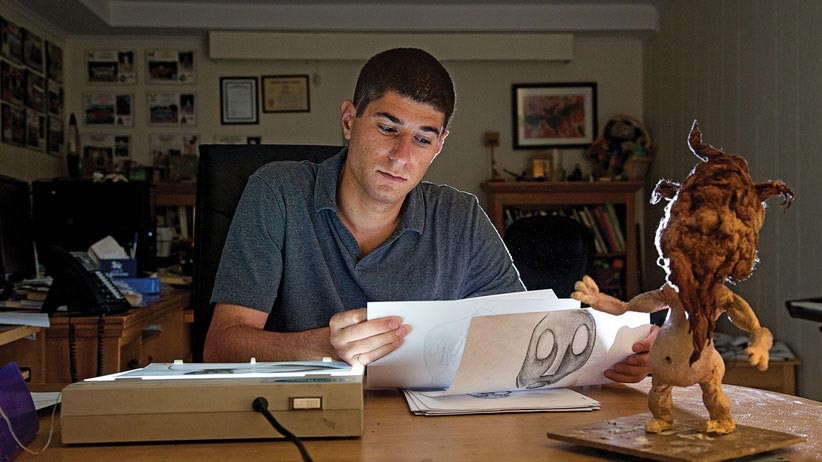New grad reflects on double degrees
While just eight blocks separate their downtown campuses, it could appear that Concordia University and McGill University are close, yet they're quite different.
Concordia recently celebrated its 40th anniversary and features mostly modern structures in the heart of downtown, while McGill is nearly 200 years old and set among 19th-century buildings and an expansive campus.
Despite those differences — and the 15-minute walk — Adam Schachner, BFA 15, was able to simultaneously complete bachelor’s degrees at each institution. He studied film animation at Concordia’s Mel Hoppenheim School of Cinema and mechanical engineering at McGill.
 Adam Schachner’s unusual feat of earning undergraduate degrees at the same time at two institutions caught the attention of several media outlets including Maclean’s magazine. | Photo credit: Maclean’s
Adam Schachner’s unusual feat of earning undergraduate degrees at the same time at two institutions caught the attention of several media outlets including Maclean’s magazine. | Photo credit: Maclean’s
In a recent first-person article for Maclean’s magazine, Schachner wrote that after his last year of CEGEP he wanted to do a combination of animation and engineering. He had always seen himself as an inventor, but had a limited artistic background.
In the midst of his second semester of engineering at McGill, he decided to apply to the film animation program at Concordia. Schachner quickly put his application together in three days before submitting it on the deadline date. Several months later, he was accepted.
And thus began his dual life at Montreal’s two English universities.
While the common perception is that science courses are more challenging than those in humanities, Schachner found the opposite to be true. “Let me tell you, film animation was way more work than mechanical engineering,” he wrote in Maclean’s.
“Don’t get me wrong; mechanical engineering at McGill can be really difficult. But there is nothing in the world more time-consuming than animation.”
Schachner appreciates Concordia’s ability to give its students a taste of the full process and create films as opposed to just theorizing about them.
“By the end of my degree at Concordia, I felt confident in myself. I felt confident in making a film, and not just an animated film,” he says.
“I think that the education helped me with everything, like how you start a project and how you take a project from conception to completion in any domain,” Schachner says. “I think that the department was really good in developing confidence and helping students figure out the stages of a project.”
Despite the rigours of two high-intensity university programs, he maintained high academic averages in both programs. “Anyone, if they’re really excited or really want to do something, is going to be able to put more work into it than they first realized they could,” Schachner says.
With the heavy workload, he placed a priority on sleep. “On the days that I wasn’t studying, I was sleeping for eight, 10, 12 hours,” he says.
Now armed with two degrees and experience in two very different university learning environments, Schachner has formed his own ideas about higher education.
“I think that from the time we’re kids, there’s this idea of what you will be when you grow up, that you have to be this one thing,” Schachner says. “And I don’t think that’s true at all.”
“If you asked most people where they end up in life versus what they were educated in, they usually take some circuitous, complicated path and end up in something totally different.”

